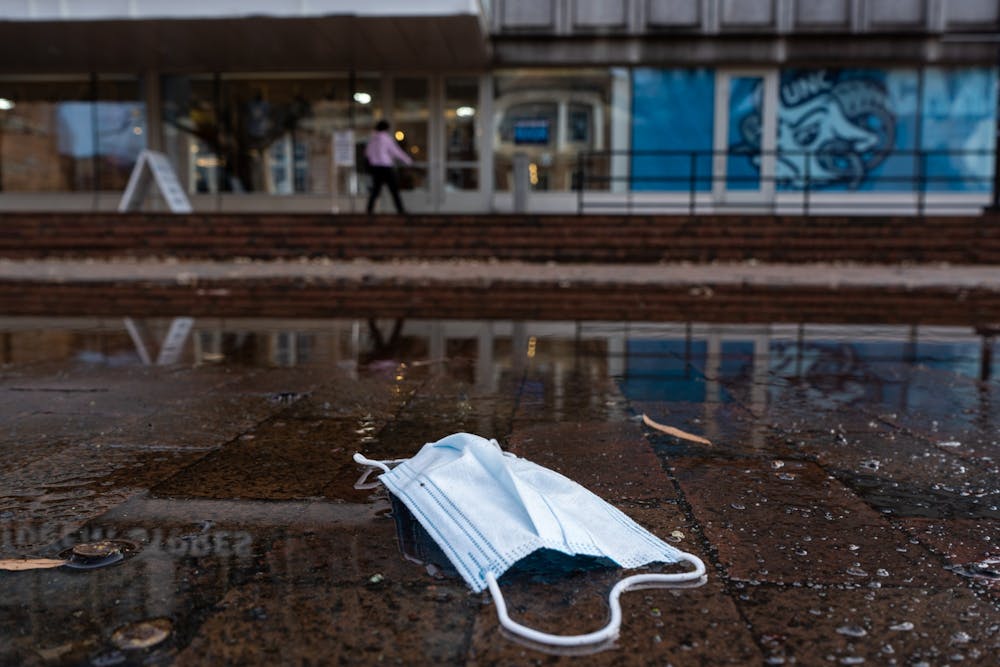As the University begins its first completely mask-free semester since spring 2020, UNC announced modifications to its COVID-19 policies in a campus-wide email July 29.
The University will no longer require unvaccinated asymptomatic individuals to test regularly and will no longer provide voluntary asymptomatic testing.
Kayla Vanhoy, a senior studying radiologic science and an intern at UNC Hospitals, said while she understands the University’s actions, she thinks the loss of voluntary testing does “more harm than good.”
“Having asymptomatic testing for anyone who wanted it on campus was reassuring to a lot of people,” Vanhoy said.
Masks continue to be required on public transit and in all health care settings, including UNC Health and Campus Health.
Audrey Pettifor, a professor in the department of epidemiology in the Gillings School of Global Public Health, said while masks are no longer required, those worried about the pandemic should consider wearing one in high-risk situations.
“Wearing a well-fitted mask will protect you, even if folks around you aren’t wearing it. It’s not perfect, but it’s better than nothing,” she said.
Pettifor said students and community members should anticipate a rise in COVID-19 cases on campus at the beginning of the semester, though the data may be less accurate considering the loss of voluntary on-campus testing and the increase of unreported at-home testing.
Symptomatic testing for students will continue to be provided at Campus Health. The former testing centers in the Rams Head Recreation Center and the Student Union will no longer be in operation. At-home test kits are available on campus at the Student Stores Pharmacy and Campus Health and typically in the vending machines in both Rams Head and the Student Union.



